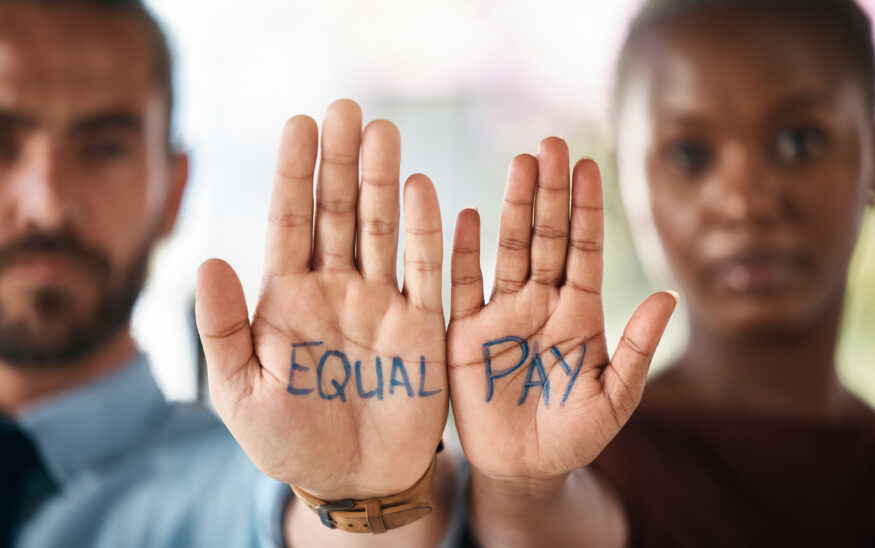Wage & Hour Violations
Understanding Wage Discrimination & Equal Pay Laws in New York
September 25, 2024

Wage discrimination is a pressing issue that affects many workers across various industries. In New York, understanding specific wage discrimination laws in New York and equal pay protections is crucial for both employees and employers. This blog post will break down key aspects of wage discrimination, equal pay laws, and how you can navigate these complex issues.
What is Wage Discrimination?
Wage discrimination occurs when employees are paid unequally for the same work based on characteristics such as gender, race, or age. This can lead to significant pay gaps and is often rooted in systemic biases. For example, if two employees perform the same job but one earns significantly more due to their gender or other discriminatory factors, that’s a case of wage discrimination.
In New York, laws are in place to combat this issue, but understanding your rights and the available recourse is essential.
Equal Pay Laws in New York
The foundation of wage discrimination laws in New York includes robust equal pay laws designed to ensure that employees receive equal pay for equal work. The Equal Pay Act prohibits employers from paying different wages to employees of different genders for work that requires equal skill, effort, and responsibility under similar working conditions.
Additionally, the New York State Human Rights Law protects against wage discrimination based on gender and other factors. If you believe you’re a victim of wage discrimination, consulting with wage discrimination lawyers can help you navigate your legal options.
The Pay Gap
One of the most concerning aspects of wage discrimination is the gender pay gap. Studies consistently show that women earn less than their male counterparts for comparable roles. This gap can have lasting effects on women’s financial security, retirement savings, and overall economic stability.
To combat this issue, New York has implemented various measures, including transparency in pay. Employers are now required to disclose salary ranges in job postings, which aims to empower workers and promote fairness.
Good Faith and Pay History
Employers are required to engage in good faith efforts to ensure equitable pay practices. This means actively working to eliminate wage disparities within their organizations. An important aspect of this is the prohibition of asking about an applicant’s pay history during the hiring process. This rule is intended to prevent the perpetuation of existing pay gaps based on previous discriminatory practices.
Minimum Wage Laws
Understanding minimum wage laws is also critical when discussing wage discrimination. New York’s minimum wage varies by region and is updated periodically. As of 2024, the minimum wage is $16 per hour in New York City, with different rates for other regions. Employers must comply with these laws, and any violation could be considered wage discrimination, especially if employees are paid less than the minimum wage.
Sexual Harassment and Wage Discrimination
Wage discrimination can also intersect with issues of sexual harassment. Many employees may face retaliation for reporting harassment or wage disparities. It’s essential to understand that both state and federal laws protect against retaliation. If you report wage discrimination or harassment, your employer cannot legally retaliate against you.
How to Address Wage Discrimination
If you suspect you are facing wage discrimination, there are several steps you can take:
- Document Your Findings: Keep a record of your salary and compare it with that of colleagues in similar roles. Note any disparities, and document any instances of intentional discrimination or harassment.
- Discuss Your Pay at Work: You may be wondering, “Can I discuss my pay at work?” Yes! Under New York law, employees have the right to discuss their wages without fear of retaliation. Open communication can help shed light on pay discrepancies.
- Consult Wage Discrimination Lawyers: If you believe you have a case, reaching out to wage discrimination lawyers can provide valuable guidance. They can help you understand your rights and represent you if you decide to take legal action.
- Report to the Office of the Attorney General: If your employer is violating equal pay laws, you can file a complaint with the New York Office of the Attorney General. They investigate such claims and can provide additional support.
- Seek Support from Workers’ Equality Organizations: Many organizations advocate for workers’ rights and can offer resources, legal assistance, and community support.
Protect Your Rights Against Wage Discrimination
Wage discrimination and the associated pay gap are serious issues that require vigilance and action. By understanding your rights under the wage discrimination laws in New York, including equal pay provisions, you can advocate for fair treatment in the workplace. Whether you’re facing wage discrimination directly or just want to ensure you’re being paid fairly, knowing the laws and seeking assistance from wage discrimination lawyers can help you navigate this complex landscape.
If you suspect you’re affected by wage discrimination, don’t hesitate to take action. Awareness is the first step toward equality, and with the right support, you can contribute to a more fair work environment for everyone.
Call Us
We at Filippatos PLLC stand in proud solidarity with all employees. If you are experiencing wage discrimination at work, please give us a call at 888-9-JOBLAW for a free consultation. We will do our utmost to help secure you the justice you deserve.
